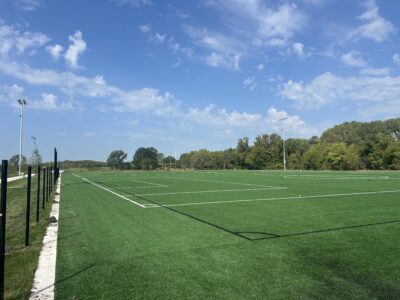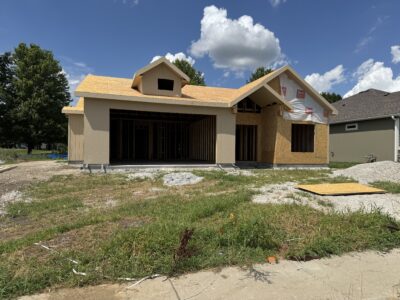City commissioner has been back in room for general public comment, but she’s not staying if abusive behavior ‘persists’

photo by: City of Lawrence YouTube screenshot
Lawrence City Commissioner Amber Sellers is pictured in this screenshot from the Dec. 17 commission meeting.
A Lawrence city commissioner has returned to the commission meeting room during general public comment after having absented herself for about two months, but whether she will remain in the room is an open question.
Commissioner Amber Sellers posted a statement to social media in early September, saying that because some members of the public repeatedly engaged in abusive personal attacks and a level of “toxicity” that eroded trust in democratic institutions, she would observe the public comment period remotely.
Since mid-November, though, Sellers has been back in the meeting room for general public comment, and on Thursday she shared some of her reasoning.
“My recent return to the commission room reflects an effort to gauge and observe whether individuals would escalate intimidating and abusive behavior in response,” Sellers wrote in an email to the Journal-World. “Unfortunately, we’ve seen how insults and implicit threats disproportionately target people of color, religious minorities, LGBTQ+ individuals, and women in public office, often in racist, misogynistic, or homophobic tones.”
While not commenting specifically on whether she has observed an escalation at recent meetings, she said that “if these actions persist, I will continue to exercise my choice to participate in general public comment from an alternative location.”
Sellers’ September post on Facebook said she felt the public comment portion of meetings was meant to be a platform for “genuine community engagement,” but that it had been taken over by individuals “more interested in creating conflict than fostering meaningful dialogue.”
Commissioners do not traditionally speak with public commenters, but just listen as they talk for their allotted three minutes on topics that are expected to be germane to city business.
Sellers in her post listed some of the attacks she and other commissioners have experienced at meetings, including:
• “Persistent racial and political slurs directed at specific Commissioners during public comments.
• Coordinating campaigns of misinformation designed to undermine the commission’s credibility and sow discord among the community.
• Intimidation tactics, including threats and bullying, that seek to create an atmosphere of fear and hostility.”
Sellers didn’t name any commenters, but as the Journal-World has reported, two commenters in particular — Michael Eravi, of Lawrence, and Justin Spiehs, of Johnson County, both of whom have filed lawsuits against the city and other local government bodies — have routinely disrupted city and county meetings with obscene name-calling and even use of the N-word by Eravi. Spiehs has also insulted Sellers’ personal appearance, as well as the county administrator’s, and called her a derogatory name while the other commissioners sat in silence. Both men still regularly comment at public meetings and espouse the view that their First Amendment rights are being trampled if they are not allowed to engage in personal attacks and obscene name-calling at the business meetings of governing bodies.
The City Commission made changes to its general public comment procedure last spring, voting in May to move that comment session to the end of the meeting and not to broadcast it live anymore. Most city staff members, except the city manager and city clerk, now leave the meetings before commissioners hear general public comment, which sometimes occurs well after 10 p.m.
The city’s spokeswoman, Cori Wallace, when asked if the city had concerns about aggressive behavior being normalized, had previously said that she could not comment on the situation due to ongoing litigation. Eravi’s federal lawsuit claiming that the city had violated his First Amendment rights was dismissed for failing to provide factual support. But Spiehs’ lawsuits against various government entities, including the city, are still pending. A federal judge, however, has denied Spiehs’ request to order the commission to temporarily stop enforcing its commenting policy, ruling that his overall claims were unlikely to succeed on the merits.
Spiehs has been arrested at least twice at public meetings, and Eravi was once banned for a 60-day period after exhibiting what the city manager termed “threatening and harassing behavior,” including telling two commissioners that he knew where they lived.







